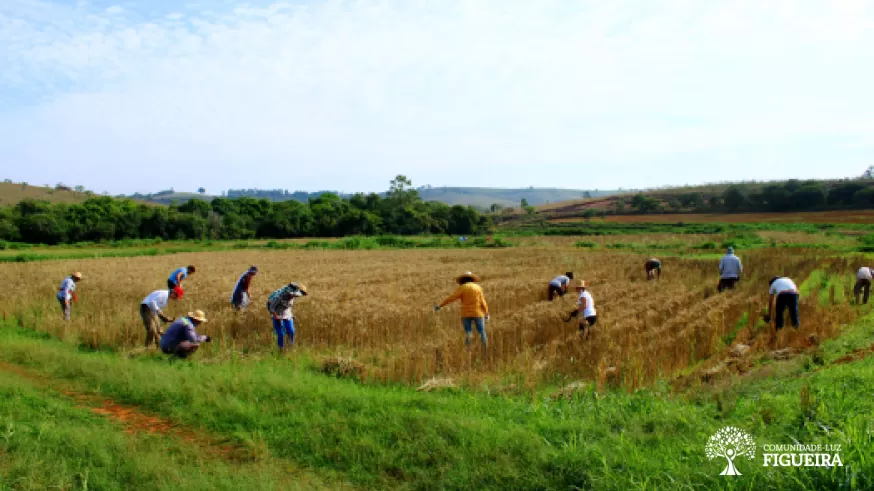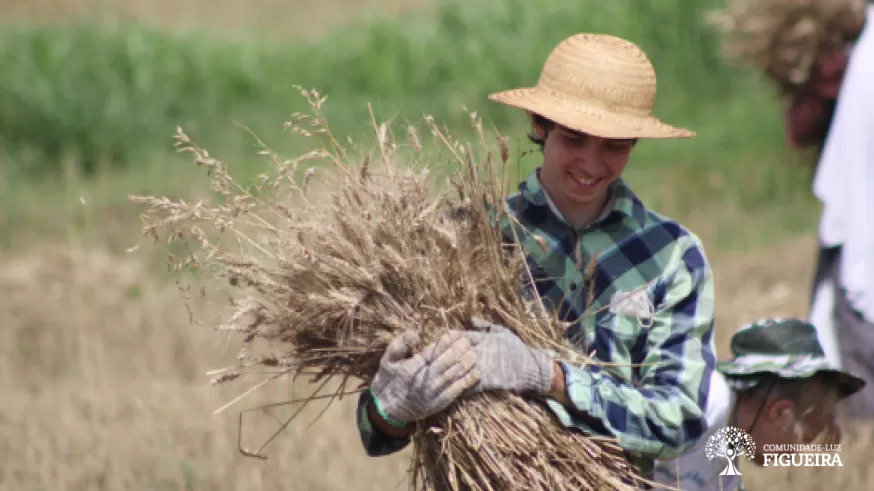Category: Environment
As we saw in the material published on the Day of Nature, October 4, trees perform biological and spiritual functions indispensable to the balance of the planet. In addition, they are endowed with much broader capabilities than what most people realize, being capable of responding to the way they are treated and of reacting to the state of mind of human beings.
Knowing this, one of the intentions of the Figueira Light-Community, located in Carmo da Cachoeira, Minas Gerais, Brazil, is to strengthen the relationship of people with trees. The Tree Group, created at the foundation of Figueira, in 1987, is the main focus for this work. Its volunteers meet once a week to take care of the trees that live in the Light-Community and on its access roads.
The entity, affiliated with the Fraternity – International Humanitarian Federation, also considers this initiative as a symbolic offering to repair the deforestation of the woods and the disrespect for trees in the world.
Intuitive communication
Maria Helena Matte, 68 years old, who has been active in the Tree Group for 10 years, tells us that the weekly task begins with an act of attunement and reverence for the plant that will be cared for. “My greatest lesson with trees was to recognize the manifestation of the love of God in them. While caring for them, I first enter into contact with that sacred principle. Then I ask their permission to interact with them and for the inner indication of what must be done, according to what Trigueirinho, the founder of Figueira, taught us,” she says.
So it’s not enough to just have an adequate technique to manage plants. The ideal is to combine expertise with intuition. In this way, the channels of communication of the volunteers open and are used, facilitating a real connection with the trees and a more acute understanding of their needs.
“We need to pay attention to certain inner impulses that show us what to do in each situation. They help us to decide if we should let the vegetation be organized by its own intelligence or whether we should intervene,” explains Hernan Miranda, 40 years old, and a member of the group for six years.
Procedures and training
In practical terms, the task of the Tree Group aims to assure the healthy development of the tree species and provide management for those that live close to people and buildings. Among the adopted measures, according to the regulations, there is:
the pruning of dead, infested, damaged and diseased branches;
the pruning of branches that interfere with electric lines and buildings;
putting on healing dressings;
the removal of foreign bodies that impair the circulation of the sap through the trunk of the plant;
harmonizing the spaces around the trees;
preventative safety measures to avoid falling branches and collisions that generate risks.
“To carry out these activities efficiently and safely, we are expanding the training in tree climbing, scaling and rappel,” affirmed Hernan. His son, Valentin, 12 years old, has been accompanying the Tree Group for five years. “While my father is up in the tree, I stay below, taking the rope off the pruned branches so that it can be used again.
Discrete Pruning
Speaking of pruning, this is a delicate subject. Especially in urban centers, we often come across trees mutilated due to drastic and unnecessary pruning.
It’s important to remember that any cut creates a wound in the plant, exposing its inner tissues and causing physiological changes. To recover, it needs to activate metabolic mechanisms that promote the healing of the injured area. In addition, improper pruning can compromise the integrity and health of trees. That is why there are laws that regulate pruning in afforestation and must be followed under all circumstances.
Hernan clarifies that in Figueira, pruning is done in a balanced and judicious way, only when the situation demands it, and always looking to stimulate the capacity for regrowth of the plant.
Buildings integrated with nature
The Tree Group also has the mission of making people aware of the importance of preserving trees and of co-existing in harmony with them.
“Nowadays, buildings can adapt to nature, rather than the other way round. There are engineering and architectural solutions that allow for this. For this reason, we ask that people try to reconcile their renovation and construction projects with the presence of trees before thinking about transplanting or cutting them,” highlighted Hernan.
“Many times, trees that are doing an extremely important material and spiritual work need to be removed from their original location because there had not been an effort made or planning for integrating them with the environment. We need to have more love and reverence for these siblings,” he emphasized.
Reconnecting with life
Through the work of the Tree Group, participants are inspired to reestablish a connection with the fascinating world of plants, which humanity lost over time, and to collaborate consciously in the evolution of the Plant Kingdom. On that path of service, they are graced with subtle impulses that increase their sensitivity to interpreting the language of nature and receiving its healing energy.
Within this context, the Figueira Light-Community continues to sow the seeds of a new way of being in the world, consistent with the need to restore the Earth.


